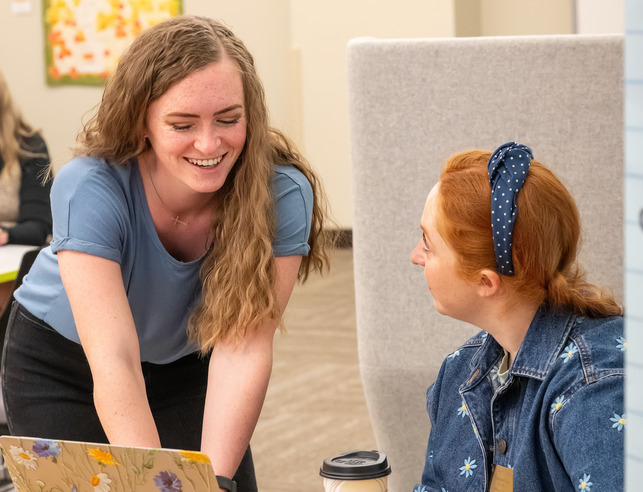Prevention education refers to comprehensive education that is focused on addressing the root causes of interpersonal violence (sexual assault, relationship violence, and stalking). Prevention strategies address the way individual, relationship, community, and societal factors impact interpersonal violence and aim to prevent violence before it occurs.

We utilize research-informed and evidence-based approaches to prevention education that are rooted in the public health model and best practice. This includes following the nine principles of prevention.
Comprehensive Services
Strategies should include multiple components and affect multiple settings to address a wide range of risk and protective factors of the target problem.
Varied Teaching Methods
Strategies should include multiple teaching methods, including some type of active, skills based component.
Sufficient Dosage
Participants need to be exposed to enough of the activity for it to have an effect.
Theory Driven
Preventive strategies should have scientific or logical rationale.
Positive Relationships
Programs should foster strong, stable, positive relationships.
Appropriately Timed
Program activities should happen at a time (developmentally) that can have maximum impact in a participant's life.
Socio-culturally Relevant
Programs should be tailored to fit within cultural beliefs and practices of specific groups, as well as local community norms.
Outcome Assessment and Evaluation
A systematic outcome evaluation is necessary to determine whether a program or strategy worked.
Well-Trained Staff
Programs need to be implemented by staff members who are sensitive, competent, and have received sufficient training, support, and supervision. Follow up (booster) training and technical assistance to staff are critical.
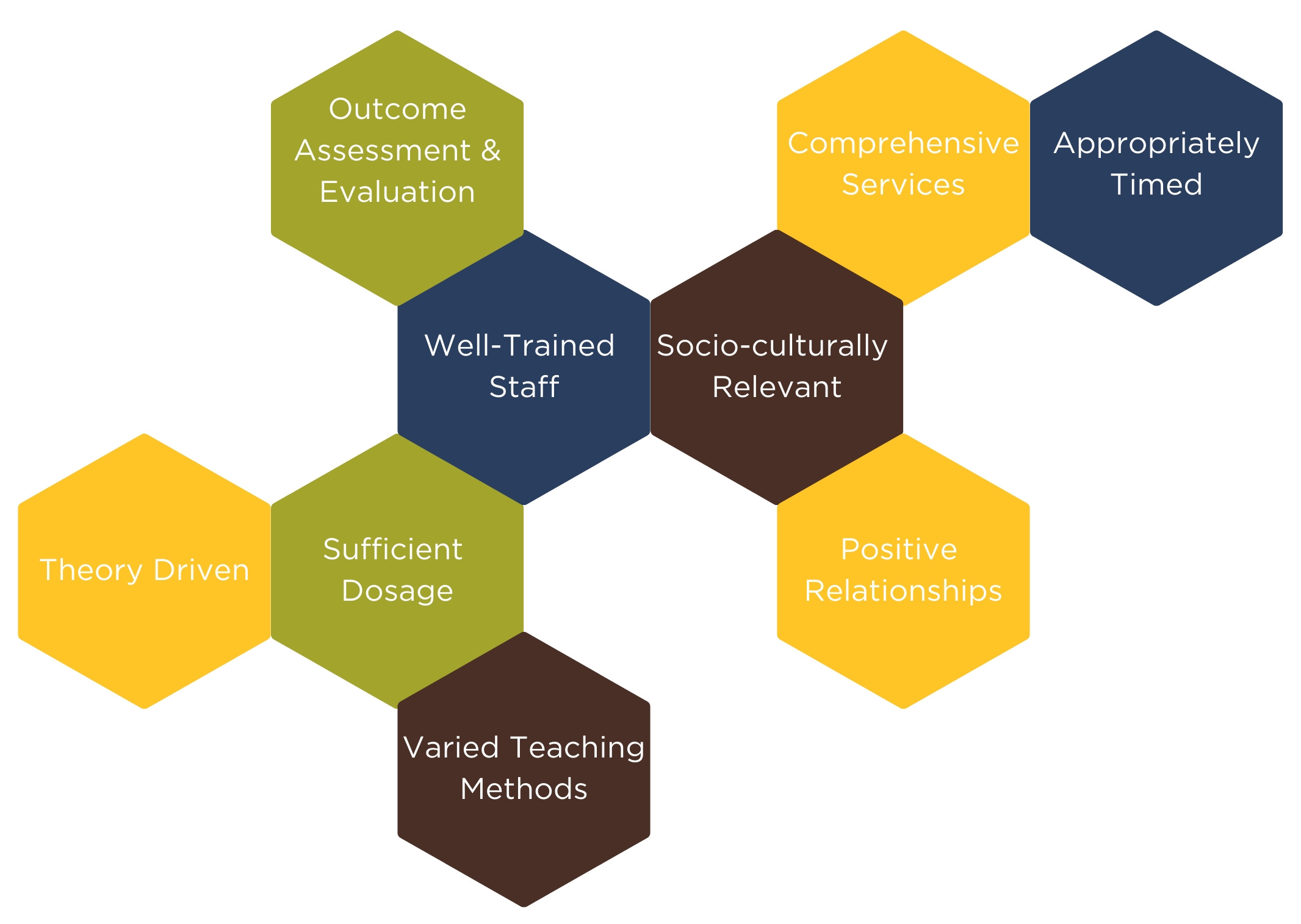
The Dean of Students Office utilizes the Centers for Disease Control and Prevention (CDC) public health approach to interpersonal violence prevention. Our prevention education focuses largely on primary prevention that is aimed at the entire campus community. This includes multi-layered approaches to prevention including incoming education for new members to our campus community and ongoing education and training for students, staff, and faculty. Counseling support, SAFE Project's confidential advocacy, and response efforts (investigations and student conduct) act as both secondary and tertiary prevention providing both short-term crisis management and long-term support to survivors who have been impacted by interpersonal violence.
Primary, secondary, and tertiary prevention definitions.
- Primary prevention: Approaches that take place before violence has occurred to prevent initial perpetration or victimization.
- Secondaary prevention: Immediate responses after violence has occurred to deal with the short-term consequences of violence.
- Tertiary prevention: Long-term responses after violence has occurred to deal with the long-term consequences of violence.
Our prevention strategy aims to educate all populations within the campus community (students, staff, and faculty) on the critical roles that they each play in preventing violence and creating culture change. To prevent sexual violence, we have to understand what circumstances and factors influence its occurrence. We use the social-ecological model to understand the factors that influence interpersonal violence as it offers a framework for understanding the complex interplay of individual, relationship, social, political, cultural, and environmental factors that influence sexual and interpersonal violence.
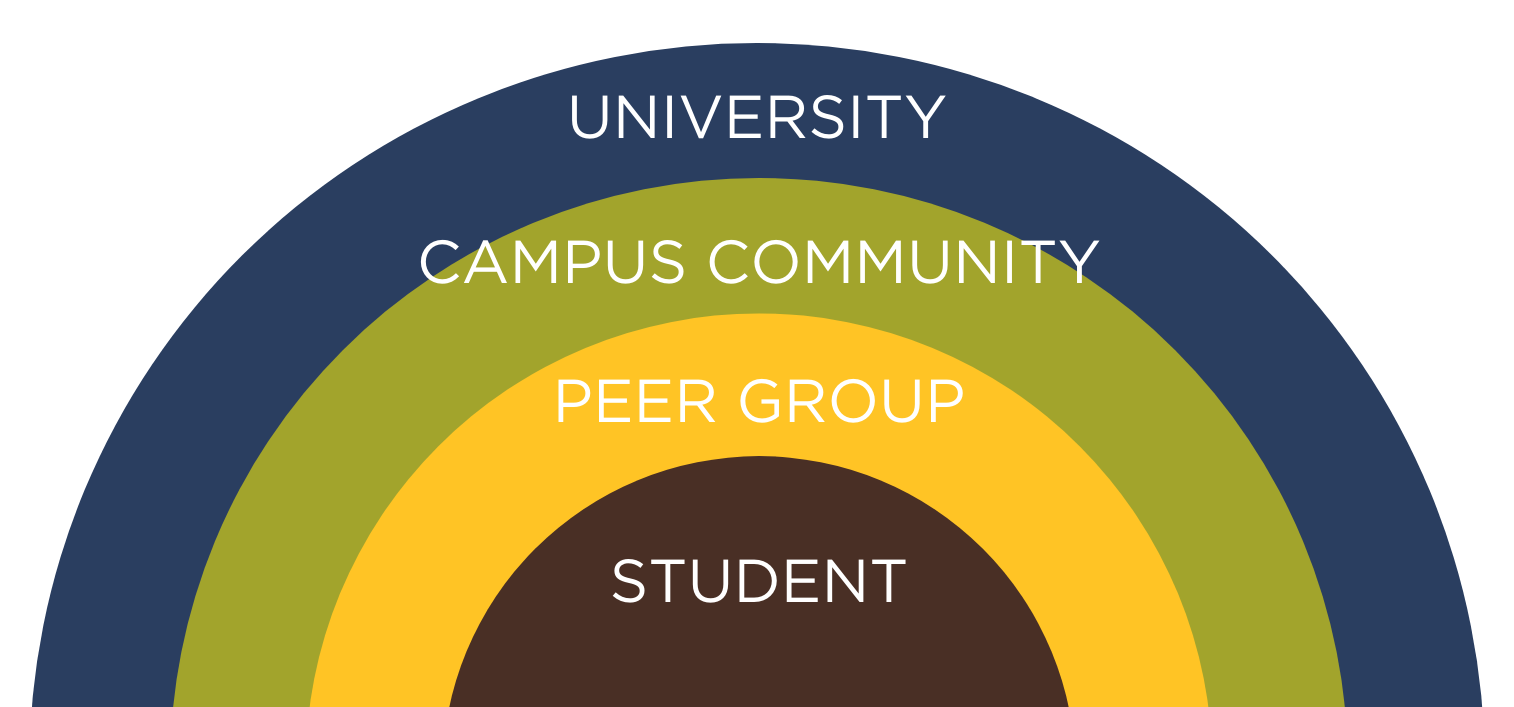
The social ecological model and corresponding prevention strategies.
|
Level |
Influences |
Strategy |
Prevention Activity Examples |
| Student | An individual's personal history, knowledge and belief system. | With VPC influence, students will promote attitudes, beliefs, and behaviors that support equality, respect, and non-violence. |
• Comprehensive, evidence-based sex education
• Consent training
• Healthy Masculinity/Brotherhood training
|
| Peer Group | Relationships with peers, partners, and family can influence risk/support for sexual or interpersonal violence and beliefs. | Through VPC connections, student/staff influence those in their social circles to adopt anti-violence behaviors and learn more about their roles in supporting others in power-based violence prevention. |
• Green Dot
• Red Flags (Healthy Relationship Training)
• Not Your Nana’s Bingo
|
| Campus Community | Factors that increase risk based on community and social environments, including an individual’s relationships with schools, workplaces, neighborhoods. | Promote outreach to encourage the broader campus community to take an active role in power-based violence prevention through awareness activities and culture change strategies. |
• Denim Day and Green Dot Day of Action
• Partnerships with student organizations (ASUW, FSL, Student Life, Athletics)
• Love Better Week
|
| University | Larger, macro-level factors that influence sexual and interpersonal violence such as harmful socialized belief systems, societal norms, and policies that create gaps in services and resources. | VPC will advocate for broader cultural change through partnerships, policy change, and data exchange. |
• Campus Climate surveys
• Partnering with ASUW for policy change
• SAFE Men (sphere of influence)
• SAFE Bars
|
What's Your Green Dot?
Here at The University of Wyoming, we are committed to reducing and preventing interpersonal violence such as sexual assault, relationship violence, and stalking. Green Dot is a bystander intervention program that gives people the skills and tools to prevention and intervene in Red Dot moments (sexual assault, relationship violence and stalking). We believe that if everyone does one thing, no one will have to do everything.
A Green Dot is your choice at any moment to make campus safer by promoting safety for everyone and letting others know that you will not tolerate violence. A Green Dot is any behavior, choice, word or attitude that sends a clear message that:
- Violence is not okay with you, and
- Everyone is expected to do their part.
For more information and to register for training, visit uwyo.edu/greendot.
Green Dot Works!
Since the University of Wyoming instituted the Green Dot program in 2020, we have trained nearly 1,800 students in the full 3.5-hour student bystander training, and another 4,400 students and staff have been through a 70-minute overview training. Between 2019 and 2023, UW has seen a 11.2% decrease in cases of sexual violence, 27% decrease in dating and domestic violence cases, 26% decrease in stalking cases, and an amazing 47% decrease in instances of sexual harassment by other students. Our focus of changing the campus culture surrounding power-based violence is working. During the 2023 Campus Climate survey, we learned that students that have received Green Dot training we significantly more likely to intervene in harmful behaviors. We are learning to look out for each other.
But even with all this good news, there is still more work to be done. According to the 2023 survey, 18.2 percent of UW students have reported experiencing at least one instance of sexual assault during their time at our institution.
Program Request
Click the link to request a program from the Violence Prevention Office and see all of the programing we offer.
Green Dot Bystander Intervention
This interactive training uses a nationally recognized bystander intervention model called “Green Dot.” Participants will learn about power based personal violence, barriers to intervention, and the “3 Ds” of bystander intervention. Using interactive and individualized scenarios, participants will leave feeling empowered to be an active bystander. The University of Wyoming has adopted this program as our signature training focused on ending sexual violence, dating violence, and stalking on campus. To date, we have trained more than 1,200 students, faculty, and staff Green Dot.
The learning outcomes are:
- Identify the 3 Ds to bystander intervention (Direct, Distract, Delegate.)
- Describe the differences between a reactive Green Dot and a proactive Green Dot.
- list three examples of proactive Green Dots.
- Identify one confidential and one non-confidential resource for someone experiencing interpersonal violence.
- Identify warning signs of high-risk or potentially harmful situations.
- Identify barriers that prevent them from intervening in high-risk or potentially harmful situations.
In this “scaled down” version of the Green Dot training, participants engage in a preview of the bystander program that includes an introduction to bystander intervention strategies. The biggest difference between the overview and the full training is less interactive role playing and scenario exercises.
The learning outcomes are:
- Differentiate between a red dot and green dot.
- Identify the 3 Ds of bystander intervention.
- Identify one confidential and one non-confidential resource for someone experiencing interpersonal violence.
This presentation will introduce University of Wyoming faculty and Staff to the Green Dot Bystander Intervention program. Participant Will receive an overview of power based personal violence, barriers To intervention, and the 3 Ds of bystander intervention.
The learning outcomes are:
- Identify the 3 Ds of bystander intervention.
- Identify one confidential and one non-confidential resource for someone experiencing interpersonal violence.
- Describe the benefit of bystander intervention strategies in reducing sexual assault, dating violence, and stalking at UW.
These interactive “booster” sessions serve as a refresher to those that have already been through the Green Dot training. They can take many different versions that can include basic review or even in the form of “Green Dot Trivia.” It is also important to periodically review the material so that it stays fresh in our minds.
The learning outcomes are:
- Identify ways to proactively use the 3 Ds in intervention scenarios.
- Identify barriers that prevent them from intervening in high-risk or potentially harmful situations.
- Identify one confidential and one non-confidential resource for someone experiencing interpersonal violence.
- List cultural factors at UW that contribute to power-based personal violence.
SAFE Men Comes to UW
Albany County SAFE Project and UW Violence Prevention have teamed up to bring SAFE Men to the University of Wyoming campus. The program engages community leaders and students to take a larger role in ending power-based violence. SAFE Men meet once per month during the school year to discuss:
-
What Is Power Based Violence
-
Trauma and Adverse Childhood Experiences
-
Navigating The Legal System
-
Healthy Masculinity
-
Society’s Role in Ending Power Based Violence
Sessions are activity-based and feature local experts as guest speakers. SAFE Men also commit to developing a personal project that focuses on awareness-building, prevention, or direct survivor services. Instructors are available for technical assistance.
Why Men?
Men in the US are in trouble. The Equimundo Center for Masculinities “State of the American Men 2023” report reveals that two-thirds of young men feel that “no one really knows” them, 40% of all men show depressive symptoms, and 44% of all men had thoughts of suicide in the prior two weeks. Young men, especially, have less optimism for their future and the lowest levels of social support.
Research affirms that the more a man subscribes to cultural norms about manhood that support emotional repression, self-reliance, dominance, and control, the less mentally strong and adaptable he is. Higher rates of depression, anxiety, bullying and sexual harassment of women, and suicidal thoughts are all associated with endorsing the socialized ideals of “the perfect man.”
Coming Soon: Women-specific programming
Young women have a completely different set of socialized standards that can lead to isolation, depression, and unhealthy gender norms. The Violence Prevention Center is in the process of developing a program for women that will provide support, solidarity, and educational opportunities for women much like the SAFE Men program. This program is due to premier sometime in the 2025-2026 school year.
Join the nearly 50 SAFE Men already doing their part to end power-based violence in the Laramie community! Organizers will contact you for a personal interview.
Check back in with us at a later date for the link to apply.
Contact Bob Vines at rvinesjr@uwyo.edu or Allison Wagg at prevention@safeproject.org for more information.
Workshops
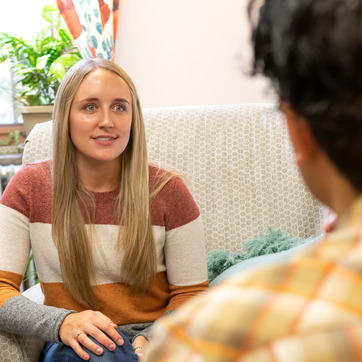
Let’s face it, there’s a lot of stuff about ourselves that we just don’t know. In this presentation, one of our sexperts will take your through the basics of sex education and healthy sexuality. Interactive, evidence-based, and absolutely honest – this is the sex ed you didn’t get in high school.
The learning outcomes are:
- Describe what it means to be sexually healthy.
- Describe what pleasure means to you.
- Identify three resources that enhance and protect your sexual health.
- Identify one confidential and one non-confidential resource for someone experiencing interpersonal violence.
Consent is not an easy concept to figure out, but we have been taught otherwise. We have been teaching consent in the binary – yes/no, active/passive, right/wrong, good/bad. When we look at consent in the binary, we ignore that everyone involved in an interaction has the responsibility to ask questions, give authentic answers, and negotiate different choices. The binary ignores important influences like power, control, and authority. In the workshop, we will dive deep into the waters of “realistic” consent.
The learning outcomes are:
- Describe how a lack of general consensual understanding can lead to violence.
- Describe how capacity, information, affirmation, and boundaries serve as the pillars of a healthy sexual relationship.
- Identify ways you can help someone who may disclose a sexual assault to you.
An engaging consent workshop that uses pizza as its metaphor. Eat some pizza while learning about the importance of consent and building skills for how to ask for and give consent in all types of relationships. Learn how to communicate consent in easy, fun, and doable ways. We’ll also be talking about how we all play a role in creating a culture of consent within our communities.
The learning outcomes are:
- Identify at least two ways to ask for consent.
- Articulate a clear definition of consent.
- Identify three sexual/intimate activities you like and three sexual/ intimate activities you dislike.
- Locate one confidential and one non-confidential resource for someone experiencing interpersonal violence.
Ever heard someone say, “Drunk sex is better sex”? This program examines how substances like alcohol and cannabis can create complications managing the relationship between substance use and consensual sexual activity. In this program we explore the cultural norms around dating, hook ups, drinking, and sex. We also examine alcohol’s role in campus sexual assault rates.
The learning outcomes are:
- Describe the culture of hooking up/dating, sex, and substance use.
- Identify the nuances of negotiating sexual consent when drinking alcohol or using other substances.
- List key ways to help someone who has been drinking and is considering sexual activity.
- Locate one confidential and one non-confidential resource for someone experiencing interpersonal violence.
Healthy Relationship Workshops
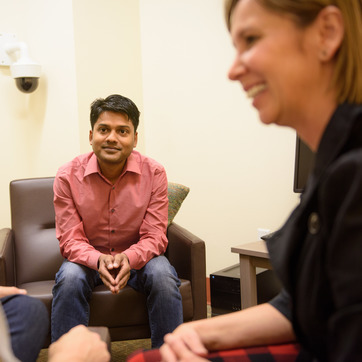
Do you have friends? Coworkers? Family members? Roommates? Romantic or sexual partners? If you answered yes, this interactive workshop is for you. Content includes identifying components of healthy relationships using high-energy activities. We look at professional, romantic, familial, and platonic relationships and relationship spectrums to practice evaluating relationships.
The learning outcomes are:
- Identify four characteristics of a healthy relationship and four characteristics of an unhealthy relationship.
- Describe healthy professional, romantic, familial, and platonic (friend) relationships.
- Identify two warning signs of an abusive relationship.
- List one confidential and one non-confidential resource for someone experiencing interpersonal violence.
Relationships can be hard. There usually is no handbook to dating – but fortunately, we have created one. This presentation is a fun and engaging guide through getting into relationships in a healthy way, staying in healthy relationships, and how to break up without breaking down.
The learning outcomes are:
- Name two characteristics of a healthy relationship and two characteristics of an unhealthy relationship.
- List one or two ways to ask for consent – and not just for sex.
- List at least two healthy coping mechanisms for a breakup.
- Be able to name one confidential and one nonconfidential resource for someone experiencing interpersonal violence.
Do you want better friendships? Do you crave a better work-life balance? Do you struggle setting boundaries with your family? If you answered “yes,” this interactive workshop is for you. We will learn about types of boundaries, why we need them, and practice setting boundaries in professional, romantic, familial, and platonic relationships. You’ll leave with knowledge and skills to set boundaries you want to set in your personal life.
The learning outcomes are:
- Explain the four different types of boundaries.
- Practice setting boundaries in professional, romantic, familial, and platonic relationships.
- Identify boundaries for two relationships that you want to set In the next two weeks.
- Locate one confidential and one non-confidential resource for someone experiencing interpersonal violence.
Designed specifically for fraternities, this workshop will explore the connection between the organization’s values and providing safe spaces for their brothers, sisters, and other classmates. We will explore such topics as healthy relationships and healthy masculinity, personal and group boundaries, and ways to connect actions to values.
The learning outcomes are:
- Participants will identify characteristics of healthy relationships and how to foster them.
- Participants will be able to identify healthy masculinity’s role in creating positive relationships and group dynamics.
- Participants will recognize red and green flags in relationships, group culture, and interactions.
- Participants will develop skills to set boundaries for themselves and support friends in boundary-setting.
Love Labyrinth is a short, 3-minute film that helps people understand the signs of emotional abuse and the controlling and threatening behavior patterns that show up in everyday situation. This film shows how emotionally abusive behaviors like gaslighting and volatility can make someone feel like they’re trapped in a maze and unable to get out. Participants will be facilitated through a series of discussion points and activities.
The learning outcomes are:
- List at least three signs of a healthy relationship and three signs of an unhealthy relationship.
- Identify a strategy to help a friend in an unhealthy relationship.
- Identify a strategy to help you navigate the end of a relationship.
- List one confidential and one non-confidential resource for someone experiencing interpersonal violence.
Escalation is a compelling film that tells the story of an abusive relationship – from its sweet beginning to a tragic end. The authentic depiction of unhealthy behaviors escalating into abuse helps people recognize and understand the early signs of relationship abuse. Participants will watch the video then be facilitated through a series of discussion points and activities.
The learning outcomes are:
- List at least three signs of a healthy relationship and three signs of an unhealthy relationship.
- Identify a strategy to help a friend in an unhealthy relationship.
- Identify a strategy to help you navigate the end of a relationship.
- List one confidential and one non-confidential resource for someone experiencing interpersonal violence.
Other Workshops
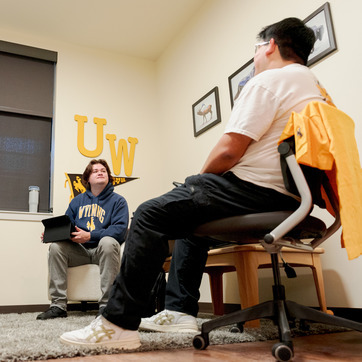
When we think of stalkers, we often think of hooded, creepy people lurking in the shadows. Most victims of stalking on campus do not identify what they are experiencing as a crime and do not seek formal help. In this scenario- packed workshop, participants will learn how to identify stalking and how to find help.
The learning outcomes are:
- Identify different reasons why a stalking may perpetrate this crime.
- Identify the four different types of stalking.
- Identify on campus resources to help a person who may be a victim of stalking.
A friend is the most likely person that someone will turn to if they have been sexually assaulted. In fact, the 2023 campus climate survey shows that over 80% of survivors tell a friend. Come learn what helps, what doesn’t, and what a big difference you can make in your friend’s life/. (Workshop can be adapted for abusive relationships)
The learning outcomes are:
- List at least 5 on and off campus resources to help someone who has experienced sexual assault (or dating abuse)
- Describe the difference between helpful and harmful responses to a disclosure
- Describe what happens after someone is referred to the Dean of Students office.
Let one of the Violence Prevention Center’s Peer Educators introduce you to friends Indigo and Emery as they try to address their friend Dae’s troubled relationship that shows signs of financial abuse. This interactive workshop from the One Love Foundation includes a short film and several discussion points and activities. Participants will practice having difficult conversations about harmful relationship behaviors as well as discussing setting boundaries including financial ones.
The learning outcomes are:
- Identify at least three signs of a healthy relationship, and three signs of an unhealthy relationship.
- List at least one way where boundaries differ in friendships vs romantic relationships.
- Name at least one local and one national service providers that can Be a resource for those who may be experiencing relationship abuse.
- List one confidential and one non-confidential resource for someone experiencing interpersonal violence.
What is hazing? It’s not always how it looks in the movies. Learn what hazing looks like in this interactive workshop. After attending, you’ll have a better understanding of hazing and how to prevent it. Make your student organization stand out by engaging in hazing prevention education.
The learning outcomes are:
- Identify one confidential and one non-confidential resource if you are concerned about hazing for yourself or others.
- Explain how hazing is sustained within group culture.
- Identify two ways you will create an environment in your organizations that is actively against hazing.
Storytelling is a powerful tool in evoking social change. As a matter of fact, it is the most effective way to bring change. Participants will learn about the power of storytelling, then be facilitated through a series of prompts that will help them develop their own narrative. This workshop uses strategies developed by Capital Storytelling. The 90-minute version will allow participants to share their newly crafted stories.
The learning outcomes are:
- Be able to identify the difference between dominant and counter narratives.
- Be able to describe at least one way that storytelling can change a person’s view of a topic or another person.
- Set the groundwork in crafting your own personal narrative.
This workshop will focus on understanding adverse childhood experiences (ACEs) and its effects on overall health outcomes. Participants will also learn what it means to be “trauma informed,” will learn about the Social Determinants of Health, and will get some real world tips on how to provide resources to children who have experienced trauma. Although this workshop may be best suited for education, psychology, and social work students; it is valuable for anyone who intends to work with children.
The learning outcomes are:
- Be able to identify what being “trauma informed” means.
- Identify at least three adverse childhood experiences.
- Identify at least two social determinants of health.
- Identify at least one strategy in providing help to a child with a history of trauma.
There is no doubt that technology has made our lives easier. But it has also made our relationships more complex. This presentation will look at the harmful side of sexting, especially when it involves children. It will also take a look at the role of hypersexualized media and pornography plays in building confusion around what a healthy relationship should look like. In states where comprehensive, evidence- based sex education is not mandated, many of our young people turn to the internet to learn about sexuality. This is not healthy.
The learning outcomes are:
- Be able to define “sexting.”
-
Define Wyoming laws focusing on possession of nude images of minors.
-
Describe the negative effects of pornography on the brain.
-
Describe the negative effects of hypersexualized media on the brain.
Social media can skew our view of the relationships around us and Influence our decision to stay in unhealthy ones. Billions of photos are posted to social media every day, but you can’t always see the big picture through the small ones, especially when it comes to unhealthy relationships. Behind the Post is your go-to workshop for educating about digital consent and social media. Participants will take an intimate look at Zoe and Will’s relationship – the parts their friends may not see – and will go through discussion points and activities. The 90-minute version includes additional practice for participants.
The learning outcomes are:
- Be able to describe how communicating boundaries is important in a relationship.
- Be able to identify examples of guilting, isolation, and sabotage in a relationship.
- Be able to identify at least two strategies to help a friend who may be experiencing abuse in their relationship.
- List one confidential and one non-confidential resource for someone experiencing interpersonal violence.
How did we get here? How do we move forward? Harm is not invisible- let’s figure out how to address it! In this workshop, we take a close look at our culture, examine how sexual and interpersonal is perpetuated and sustained within our culture and discuss methods for challenging the foundation that allows violence to exist in our community.
The learning outcomes are:
- Examine the impact of language, jokes, and seemingly harmless interactions that contribute to cultural acceptance of interpersonal violence.
- Describe 3 ways to challenge the cultural influences that cultivate interpersonal violence.
- Locate 1 confidential and non-confidential resource for someone experiencing interpersonal violence.
In this workshop participants will learn the four steps to responding to a disclosure of sexual assault, dating violence, or stalking. Participants will learn that disclosure is more common in university settings than they may perceive and will also learn that not all reactions are identical.
The learning outcomes are:
- Describe the role of a mandatory reporter and reporting obligations.
- Identify the 4 steps to responding to reports.
- Identify three relevant resources.
Prevention Games
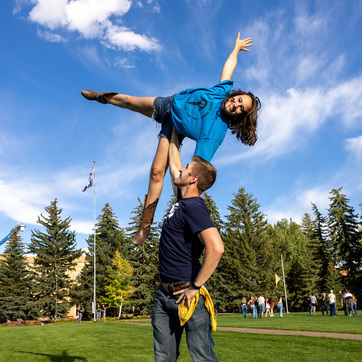
This event is a fun take on your typical trivia night. Through evidence-based questions, participants will test their knowledge on a broad range of healthy sexuality facts. We will provide the questions, hosts, and unique prizes.
Through evidence based questions, participants will achieve the following learning outcomes:
- Identify two facts about contraception, barrier methods and sexual health care.
- Describe the role that sexual health care plays in healthy relationships and hookups.
- List at least three relevant resources for sexual health.
- Locate one confidential and one non-confidential resource for someone experiencing interpersonal violence.
Now this isn’t your Nana’s Bingo! The Violence Prevention Center welcomes students to forget what they know about bingo and to engage in a new take on this classic Nana game. This game offers students a fun way to learn about sex, healthy communication, boundaries, safer-sex, and STI awareness. We provide a stress-free environment for students to learn and have a chance to win some great prizes.
The learning outcomes are:
- Identify 3 on or off campus resources related to sexual and interpersonal violence.
- Describe aspects of sex that are important to you.
-
List 2 types of safer sex supplies.
Don’t worry, we’re what you call experts. The MythBusters program provides a safe and engaging environment to participants to debunk commonly believed myths about rape and sex. Using our “MythBusters” cards, participants will be tasked with identifying if some myths about rape and sex are “Busted” or “Plausible”. Debunking these myths will give participants a broader understanding of how these myths is formulated and sometimes become general knowledge. Participants will be separated into teams and will compete for the greatest number of myths proven “Busted” or “Plausible.” Locations of safer sex supplies will be acknowledged and shared to participants. Having an environment where participants can discuss these myths can allow them not to be accepted as frequently.
The learning outcomes are:
- Participants will demonstrate a knowledge of healthy sex and sexuality.
- Participants will be able to identify one myth and debunk it.
- Participants will be able to locate 2 safer sex supplies locations on campus.
- Locate and describe 1 confidential and 1 non-confidential resource on campus.
Keynotes
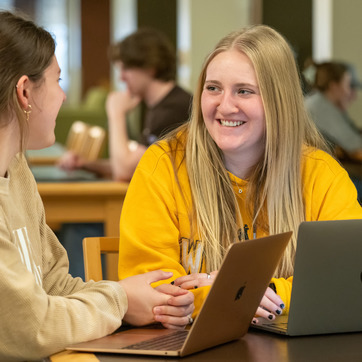
Dr. Julianne Holt-Lunstad said, “We need to prioritize our social relationships like our life depends on it, because it does.” Science has been telling us for years that the key to a long and happy life is strong social connections. In the spring of 2020, those connections were taken away from us. New studies have shown that the COVID pandemic has had a very negative impact on all of us, not just children who had to navigate a world through computer screens, and our elderly who were isolated from loved ones for more than a year. What about the rest of us? Bob Vines will tell a story about how moving to a new city for a new job, then suddenly being isolated from the world had an enormous impact on his mental health. He fell into a deep depression that culminated in his own fight to survive COVID. After a 3-week coma and spending nearly two months in hospitals, he began to see the world in a different light. This keynote speech will focus on the struggles we all faced during the pandemic, how the isolation impacts our mental health going forward, and how we need to focus on those important relationships in our lives to help us through the next difficult time.
In this keynote address, Bob Vines will discuss how storytelling has the ability to change the world. He will mix in his own stories to help guide listeners through the magic of social change through connecting with others. When we share our stories, we educate, connect, and learn empathy. As an Ambassador for Capital Storytelling, Bob will help you understand how providing counter stories to dominate and harmful narratives can spark change in how people feel about others, building an inclusive, and safe community.

